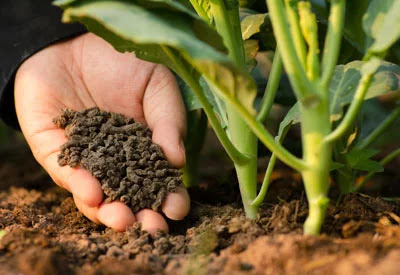Using the wrong fertilizer or using the right ones the wrong way can cause your vegetable garden to suffer. For proper plant care you need to be careful not to overuse them. This is especially true if you use slow-release fertilizers.
These are designed to slowly release their nutrients into the soil over a period of time. If you apply them too often, your garden can be over-fertilized. Always read the directions for the fertilizers you are using on your plants. In many cases, they will suggest how often to apply them.
The right fertilization technique is important to healthy plants
Fertilizers are made up of three nutrients :
- Nitrogen
- Phosphorus
- Potassium
Nitrogen helps with leaf and stem growth, phosphorus helps with fruit growth and development of a strong root system, and potassium helps to make the plant stronger. When you plant your vegetable garden, a complete fertilizing will help get it going. Once it has begun to grow, for the best care you need to be careful not to over-fertilize with nitrogen. Too much nitrogen can cause the plant to put its energy into creating leaves and stem growth, and not fruit growth, which can lead to a low-yielding plant.
Read Also:Container Gardening - Great Way to Grow Your Own Fresh, Healthy Vegetables in a Small Space
When you're buying fertilizers, consider that you are going to be eating those vegetables that it's being used on. You should use environmentally responsible and/or organic fertilizers for your own sake.
Fertilization and vegetable care tips:
- If you are using a water-soluble fertilizer, make sure your garden is well-watered before applying it.
- Before planting your vegetable gardens, and before applying any fertilizers, make sure you are starting with fertile soil. Vegetable gardens use a lot of nutrients from the soil, so if you plant in the same location each year, you should mix in some organic matter before you start planting.
- If you are using manure, use well-aged manure. Do not use fresh manure.




